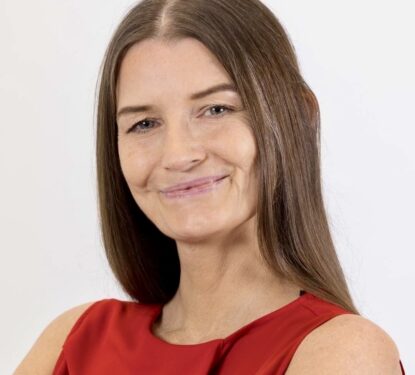
A qualified medical doctor in her native France, Emilie Berthet Clairet draws upon her knowledge of conventional medicine to treat her patients with a holistic approach. She combines clinical hypnotherapy with holistic nutrition to help clients optimise their mind-body connection to achieve 360-degree wellbeing.
Why do your clients come to you?
The most common complaints are digestive issues, as well as stress-related conditions like skin conditions and sleeping disorders. Patients often come to me after trying various methods to solve their problems, but nothing has worked. Some also face complicated health issues like autoimmune diseases or cancer, and they seek a holistic approach to support their allopathic [conventional medicine] treatment. With my comprehensive background, I can understand their conditions, work with them on diet, lifestyle, and stress management, or even use hypnotherapy to support them through this journey. I was treated for breast cancer a few years ago, so I can relate to what they are going through.
You qualified as a medical doctor in France. How does your background in conventional medicine inform your approach?
Having a medical background helps me understand their journey and the different treatments they had. A patient who understands their condition is in a much better place for healing. We have a lot more power over our health than we think. During my medical studies in France, I was trained to understand how the patient feels about his illness. During my second year, an oncologist professor gave a lecture to our class on the relationship between the patient and his disease and how it profoundly impacts the prognosis. Hearing this professor, who specialised in chemotherapy protocols, explaining to us that the patient himself, his state of mind and his well-being had a significant role in his recovery was a revelation for me, and it shaped who I am as a doctor. Later, it made sense for me to work mainly on a holistic approach.
You offer clinical hypnotherapy and holistic nutrition. What’s the connection between these two disciplines?
Have you ever heard about having a gut feeling? As a holistic nutritionist, I work mainly on supporting people in restoring their intestinal flora – our second brain, and the centre of our emotions. When working with clients on rehabilitating their gut health, we often get stuck as the intestinal flora is very sensitive to stress and emotional imbalance. Probiotics and supplements are powerless if we don’t address the root cause of what profoundly affects the gut. Hypnotherapy is a powerful tool to help address the emotional issues that may be affecting our gut.
In what circumstances might a holistic approach be more appropriate than a clinical approach, and vice versa?
I don’t believe there are any circumstances where one is better than the other. Most of the time, it is not one or the other: it is one and the other. These approaches are not opposite but complementary. A holistic approach mainly means considering the patient as a whole, which should always be the case. Allopathic medicine has made fantastic progress over the past century and offers excellent healing tools. Because of science we know so much about our various body systems, but as a result, some clinical approaches tend to focus on the organ itself and forget to consider it a part of a whole body and its interactions with other organs and systems, including the mind.
A simple example is antibiotics. They have been overused during the past few decades, and I see many patients with damaged intestinal flora after long courses of antibiotics. Antibiotics are one of the best discoveries of the past century, and they have saved so many lives. But now we find that some patients are reluctant to take them, even if it means that you won’t recover from your infection. So what can we do? Taking supplements and probiotics during and for a few weeks after the treatment helps rebuild the intestinal flora and minimises the antibiotic’s side effects without affecting the drug’s effectiveness. This is a perfect example of a holistic-allopathic approach, keeping the efficiency of medications while mitigating long-term side effects as much as possible. It is not about choosing approach one or the other, but understanding to what extent each approach can be helpful in healing.
Can you explain to us a little bit more about hypnonutrition and who can benefit from it?
Hypnonutrition is about using nutrition and hypnotherapy to improve our relationship with food. The first few sessions are a nutritional evaluation to understand what kind of nutritional shift would most benefit your health. We all have an emotional and sometimes very complex relationship with food. But sustainably implementing the right changes for her health often needs more than willpower. Many of our behaviours towards food are coping mechanisms of deeper wounds we are unaware of. From a purely physical point of view, it is not true that we can’t live without chocolate, we can’t function without coffee, or that we need this comfort food to feel better. These are the only beliefs that have helped us get through life. But when our health is impacted, it can be tough to change those beliefs because our mind is wired to believe them as true. Hypnotherapy is an excellent tool to understand the root of these beliefs and change them, and allow us to create a sustainable shift in our relationship to food.
.







